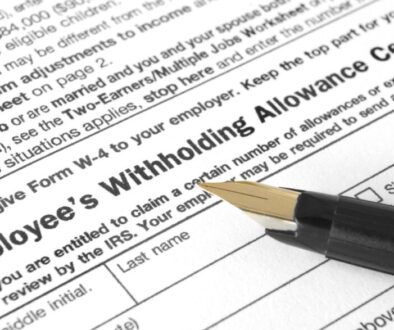How Long to Save Tax Returns
Table of Contents
How Long to Save Tax Returns
Are you wondering how long you should keep your tax returns? It’s a common question many individuals have. In this article, we will explore the recommended timeframe for keeping your tax records and why it’s important.
Why is it important to save tax returns?
Keeping your tax returns for the right amount of time is crucial for several reasons. Firstly, it provides proof of your income and deductions if you’re ever audited by the IRS. The IRS can audit returns for up to three years after the filing date, so having your tax returns on hand during this period is essential. Additionally, having your tax records handy can be helpful when applying for loans or mortgages. Lenders often require tax returns as part of the application process to verify your income and financial stability. Without proper documentation, you may encounter delays or even denials in loan approvals.
Legal requirements for keeping tax returns
Understanding the legal requirements for keeping tax returns can help you determine the appropriate timeframe for retaining your records. Generally, it is recommended to keep them for at least three years from the date you filed, or the due date of your return, whichever is later. This is because the IRS has three years to initiate an audit or review your tax return for errors or discrepancies. However, there are exceptions to this rule. If you claim a loss from a bad debt deduction or a worthless securities deduction, you may need to keep your tax returns for up to seven years. These deductions involve complex financial transactions, and the IRS may require additional time to review the documentation.
How long should you keep tax returns?
Determining how long to keep your tax returns depends on your individual circumstances and the complexity of your financial history. As mentioned earlier, the general recommendation is to retain them for at least three years. This period allows for the IRS to audit your return or request additional information. However, it’s crucial to note that the statute of limitations for tax fraud is six years. If you fail to report a significant amount of income or intentionally provide false information, the IRS has six years to assess additional taxes or penalties. Therefore, it’s prudent to keep your tax returns for at least six years to safeguard against any potential fraud allegations.
Benefits of keeping tax returns for an extended period
While three to six years may be the minimum recommended timeframe for keeping tax returns, there are several benefits to retaining them for an extended period. Firstly, having access to old tax returns can help with future tax planning. By reviewing past returns, you can identify patterns in income and deductions, which can help you make more informed financial decisions. Additionally, keeping tax returns for a longer duration can be helpful in case of any legal disputes or challenges related to your taxes. In such situations, having the necessary documentation readily available can save you time, money, and stress.
How to organize and store tax returns effectively
Proper organization and storage of your tax returns are essential to ensure easy access and retrieval when needed. Here are a few tips to help you organize and store your tax records effectively:
- Create a dedicated folder: Designate a specific folder or file cabinet to store all your tax-related documents. This will help you keep them separate from other paperwork and make them easily accessible.
- Label and date your documents: Clearly label each tax return with the tax year and any relevant supporting documents. This will help you quickly identify the documents you need without having to go through each file individually.
- Consider digital storage: In addition to physical copies, it’s a good idea to digitize your tax returns and store them securely on a computer, external hard drive, or cloud storage service. This provides an extra layer of protection against loss or damage.
- Backup your digital files: If you choose to store your tax returns digitally, make sure to regularly back up your files to prevent any loss of data. Consider using a reliable cloud storage service or an external hard drive for backup purposes.
Digital options for storing tax returns
With advancements in technology, storing tax returns digitally has become increasingly popular. Here are a few digital options for storing your tax returns securely:
- Cloud storage services: Services like Google Drive, Dropbox, or Microsoft OneDrive offer secure cloud storage options where you can upload and store your tax returns. These services often provide encryption and two-factor authentication for enhanced security.
- External hard drives: External hard drives offer a physical storage option for your digital tax returns. They can be easily connected to your computer, allowing you to transfer and access your files whenever needed.
- Online tax software: Many online tax software platforms allow you to store your tax returns securely within their systems. This can be a convenient option as it eliminates the need for external storage devices and provides easy access to your past returns.
Common mistakes to avoid when saving tax returns
While it’s important to keep your tax returns for the recommended timeframe, there are some common mistakes you should avoid:
- Not keeping physical or digital copies: Failing to retain copies of your tax returns can leave you vulnerable in case of an audit or any other financial investigation. Always make sure to keep a backup copy of your tax returns, either physically or digitally.
- Mixing personal and business tax returns: If you have a business, it’s crucial to separate your personal and business tax returns. Keep them in different folders or storage locations to maintain clarity and organization.
- Ignoring digital security: When storing tax returns digitally, it’s essential to prioritize security. Use strong passwords, enable two-factor authentication, and regularly update your security software to protect your sensitive financial information.
Tips for retrieving old tax returns
If you need to retrieve old tax returns, there are several methods you can use:
- Contact your tax preparer: If you used a professional tax preparer to file your returns, they should have copies of your past returns. Reach out to them and request the necessary documents.
- IRS transcript request: The IRS provides a transcript service where you can request copies of your tax returns and other related documents. You can do this online through the IRS website or by mail using Form 4506-T.
- Online tax software: If you filed your tax returns using online tax software, you may be able to access your past returns through the platform’s archives. Log in to your account and look for the option to view or download previous years’ returns.
Resources for additional tax information and assistance
Understanding tax regulations and requirements can be complex. If you need further information or assistance, here are a few resources you can turn to:
- IRS website: The Internal Revenue Service’s official website is a valuable resource for tax-related information. It provides detailed guides, forms, and publications that can help you understand various tax topics.
- Tax professionals: Enlisting the help of a certified tax professional can provide you with expert advice tailored to your specific situation. They can guide you on the appropriate timeframe for keeping tax returns and help with any tax-related queries.
- Online tax forums and communities: Online communities and forums dedicated to tax discussions can be a great source of information. You can interact with fellow taxpayers, ask questions, and gain insights into best practices for managing tax returns.
Conclusion
In conclusion, knowing how long to keep your tax returns is crucial for maintaining compliance with tax regulations and safeguarding your financial history. While the general recommendation is to retain them for at least three years, certain deductions may require you to keep them for up to seven years. Keeping your tax returns for an extended period can provide benefits such as tax planning and protection against legal disputes. Remember to organize and store your tax records effectively, considering both physical and digital options. By following these guidelines and utilizing available resources, you can ensure you have the necessary documentation to support your financial history and stay on top of your tax obligations.




